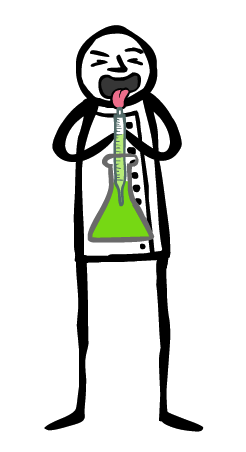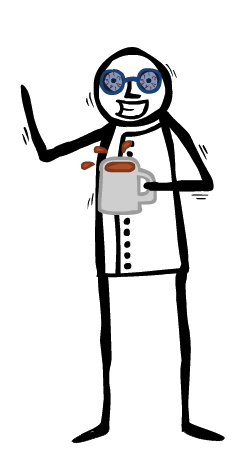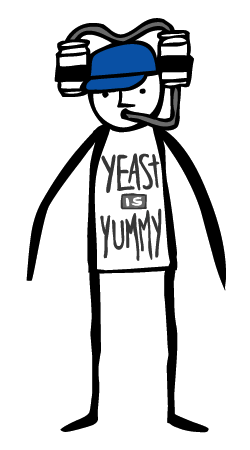PART I
It’s your first year in graduate school, and you’ve just spent an entire month working on an experiment that, for whatever reason, failed.
 Denial — “It didn’t work because it wasn’t viable in the first place!” you tell a shy lab mate. He has put on headphones in hopes of you leaving him alone. It is Tuesday evening. As they always do, your friends who are not in grad school text you at 5 pm about meeting them for beers. You are supposed to prepare for your morning lab meeting, but you decide to go out anyway — convincing your suspiciously gullible conscious that you’ll “just wake up early.”
Denial — “It didn’t work because it wasn’t viable in the first place!” you tell a shy lab mate. He has put on headphones in hopes of you leaving him alone. It is Tuesday evening. As they always do, your friends who are not in grad school text you at 5 pm about meeting them for beers. You are supposed to prepare for your morning lab meeting, but you decide to go out anyway — convincing your suspiciously gullible conscious that you’ll “just wake up early.”- Anger — “Calling those undergrad research assistants incompetent would be a compliment!” you tell your friends in a Facebook status update, “Little Dave overcooked those cell cultures much like the time he overcooked that bag of microwave popcorn at the lab. Though at least that time it incidentally earned us a visit from the fire department.” You generate 37 likes and 10 comments, and it leaves you feeling a little better.
 Bargaining — You come up with a “valid point” to share at your next lab meeting, and run the scenario over in your head:Good news! We didn’t need this research in the first place, you say, pointing to a brilliant-looking white board full of colorful notes that you haven’t actually prepared in real life. Inspired, you go home and write up a report to convince your PI of the discovery.
Bargaining — You come up with a “valid point” to share at your next lab meeting, and run the scenario over in your head:Good news! We didn’t need this research in the first place, you say, pointing to a brilliant-looking white board full of colorful notes that you haven’t actually prepared in real life. Inspired, you go home and write up a report to convince your PI of the discovery.- Depression — …And then when you wake up in the morning you trash the proposal. You ask yourself, Is it not too late to go to med school? You begin a brief and very pointless job search. Later that morning, in line to buy a coffee, you look at your watch and see that it’s 7:53 am. In exactly 10 minutes, you will be 3 minutes late for your lab meeting. You can already see it unfold. Someone comments, “Early is on time, on time is late,” and a few other over-achievers laugh. Others waiting in line notice you cringe.
 Acceptance — You get a call from your mother. She is excited to talk to you, and she tells you that she is impressed with your passion for science. Mom can make you feel so good, that is, if she’s not calling you at 8 am to “just say hello.” After, you post an inspiring quote from TED Talks on Facebook, and then go to the lab to peruse the videos at jove.com. With a little brushing up, you think, you might get to the bottom of your lab’s mission by the time you earn your degree four years from now.
Acceptance — You get a call from your mother. She is excited to talk to you, and she tells you that she is impressed with your passion for science. Mom can make you feel so good, that is, if she’s not calling you at 8 am to “just say hello.” After, you post an inspiring quote from TED Talks on Facebook, and then go to the lab to peruse the videos at jove.com. With a little brushing up, you think, you might get to the bottom of your lab’s mission by the time you earn your degree four years from now.
Stay tuned for Monday’s post on how the five stages look when you’re … six years into your degree and counting!


